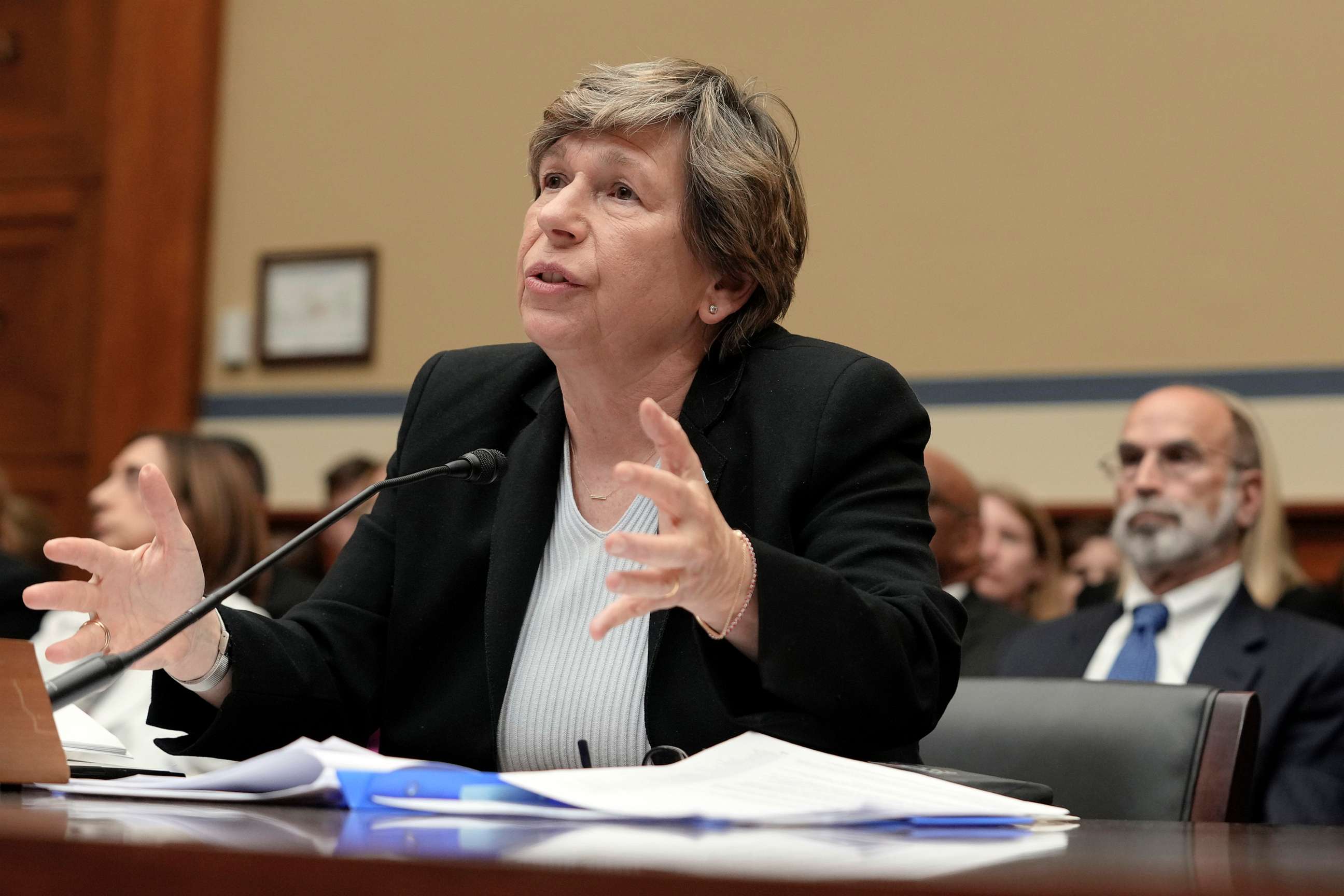Republicans grill teachers' union head on COVID classroom closures
Randi Weingarten said she wanted schools safely reopened as soon as possible.
A divided House panel on Wednesday alternately questioned and defended American Federation of Teachers President Randi Weingarten for her role in the closing and reopening of schools at the height of COVID-19 -- an issue that became increasingly politically charged as the pandemic went on.
Republican members of the House Select Subcommittee on the Coronavirus Pandemic targeted Weingarten's lack of medical knowledge when she suggested language to the Centers for Disease Control and Prevention on how to proceed with school closures and protect immunocompromised teachers.
In the three years since the onset of COVID-19, the widespread school closures -- motivated by a desire to protect public health as the virus was spreading -- have been reexamined for how they are connected to educational, social and emotional declines across the country.
Kentucky Republican Rep. James Comer, cited that on Wednesday. "Our kids are behind. We're trying to find answers," he said. "We want to prevent this problem in the future."
Rep. Mariannette Miller-Meeks, R-Iowa, criticized ATF, the union Weingarten leads, for its involvement in health policy.
"The fact is schools were relatively safe places for both students and educators. ... The effect on children has been vast, and to have no remorse on closing schools and keeping them closed for the length of the time is unconscionable," Miller-Meeks said.
"The AFT is not a scientific organization," she said. "I'm not only a doctor, I'm a former director of the State Department of Public Health, and I know how important it is to work with stakeholders to bring people to consensus. But I would say that the AFT was out of its league in this regard."
In response, Weingarten stood firm that she considered all factors when making her recommendations, with her ultimate goal being to safely open schools as soon as possible with the health of teachers and students in mind.
"We knew that remote education was not a substitute for opening schools, but we also knew that people had to be safe," she said.
"It made sense to consult with the CDC. And it was not only appropriate for the CDC to confer with educators, it would be irresponsible not to," she said.

Florida Rep. Maxwell Frost, a Democrat and former member of the March for Our Lives movement, said Republican-fueled criticism of Weingarten was a diversion from what he called the real issue plaguing schools: guns.
"This is rich, it's ironic and it has no one fooled -- this is to distract from the real special interest group that is the real threat to children all across this country: The NRA," he said, "and look, I recognize that the pandemic has had real impacts on American children. But make no mistake: For a brief time in this country, children didn't have to memorize emergency exits, children didn't have to practice active-shooter drills more than they're doing fire drills, children didn't have to walk around with a Kevlar backpack or figure out what they have to do if a shooter were to come into their classroom."
Weingarten agreed.
"Gun violence is the No. 1 cause of death of kids. And yes, obviously, we should be doing a lot more about that. And I just hope that this caring that I've heard all day long about kids on both sides will translate into what we do today and going forward about helping our kids .... and not just questioning me," she said.
Displeased with her answers, Rep. Marjorie Taylor Green, R-Ga., went so far as to criticize Weingarten personally.
"You had no business advising the CDC what the medical guidelines were for school closures, because now we have a nation of school children who have suffered because of it," Greene said. "The problem is people like you need to admit that you're just a political activist, not a mother and not a medical doctor."
Democrats on the subcommittee tended to support Weingarten by praising her efforts while also calling out what they called a lack of direction from then-President Donald Trump's administration on how to navigate COVID-19 in the classroom.

Rep. Jamie Raskin of Maryland gave credit to Weingarten for, he said, speaking up for the 1.7 million AFT members she represents.
"No leader was more outspoken or more forceful than you were. Mrs. Weingarten was not only demanding but developing specific strategies to safely reopen America's schools," he said. "I remember your school reopening plan developed with health and education experts, released in April of 2020. I remember it's the first one I ever saw."
When asked again if she was given guidance by the Trump administration on how to safely return to in-person learning, Weingarten said no.
Some Democrats called for an end to the "blame game."
"If teachers are important, we ought to act like it and we ought to stop all of his castigating, finger-pointing, accusations, innuendo about went wrong," Maryland Rep. Kweisi Mfume said. "All kinds of stuff went wrong during the pandemic. Nobody got it right, because we were moving in real time."
ABC News' Arthur Jones II contributed to this report.




